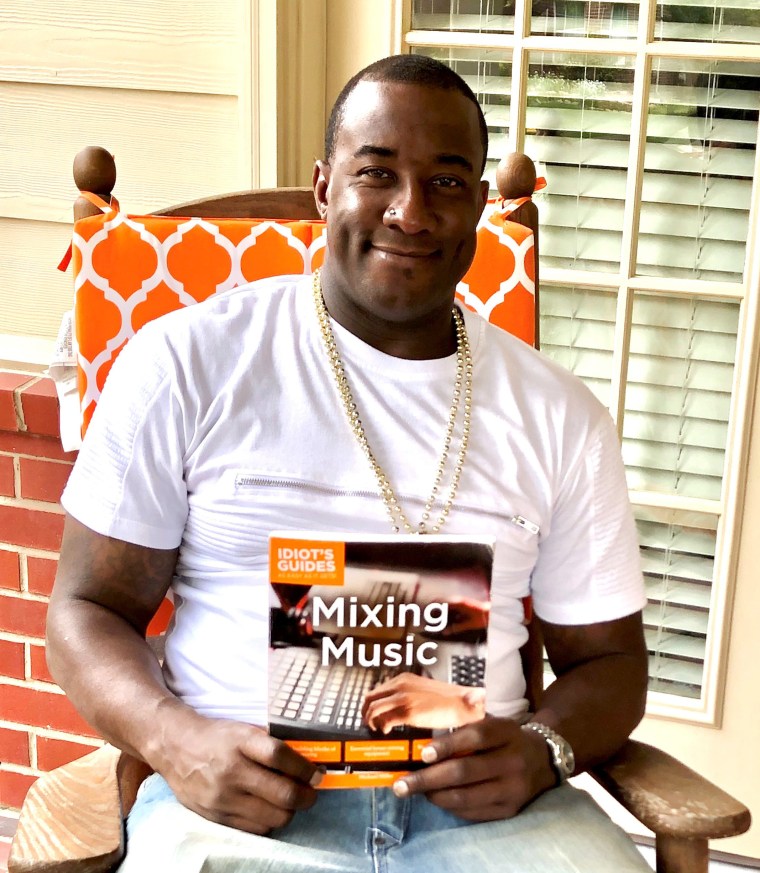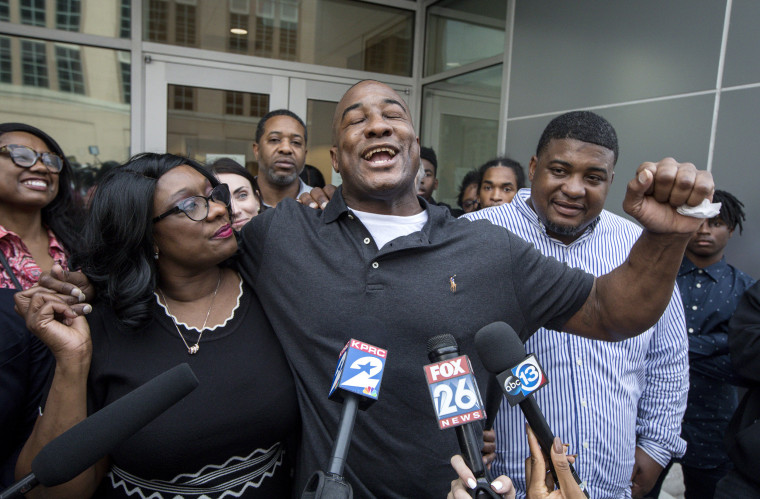For more than a decade, Lydell Grant of Houston has insisted he was innocent of murder, writing letters from his prison cell that he was "wrongfully convicted" and a "victim of a miscarriage of justice."
But even after reanalyzed DNA evidence and breakthrough computer technology helped authorities track down a new suspect, and convinced prosecutors in Harris County to support Grant's release on bail in November 2019, he was still not officially exonerated — until now.
Texas' highest criminal court last week ruled that Grant, 44, is "actually innocent" in the fatal stabbing of a man outside a Houston bar in 2010, a murder that would have left Grant locked up for life. Although Grant had an alibi witness at trial, his supporters say jurors were swayed by the prosecution's flawed DNA analysis and unreliable eyewitnesses who believed he was the Black man suspected in the crime.
Grant said Tuesday that he was overjoyed to learn from his attorney, Mike Ware, the executive director of the Innocence Project of Texas, that the state's Court of Criminal Appeals finally agreed he didn't commit the murder of Aaron Scheerhoorn, 28.
"The Innocence Project is forever in my heart," said Grant, who wrote to the nonprofit legal organization that reviewed his case in 2018 with the assistance of students at the Texas A&M University School of Law. "Through my letters, my cry for help was heard. Here you have this person you don't know, who's claiming that he's actually innocent. I want to thank them for believing me."
But Grant's struggle isn't over just yet: He is entitled to compensation for being wrongly incarcerated, which in Texas amounts to $80,000 for every year behind bars, plus the chance for monthly annuity payments for the rest of the person's life. He is also seeking to get his record of the crime expunged.

While Texas has paid out tens of millions of dollars in compensation to more than 100 wrongfully convicted people over the past 30 years, according to state comptroller data, it's not always a smooth process.
Alfred Dewayne Brown, a Black man who was wrongfully convicted in the 2003 murder of a Houston police officer and freed from death row, has been seeking compensation, which the Texas Supreme Court ruled in December he is due. However, a contentious legal battle developed with the state attorney general's office and Houston's police union over the legitimacy of Brown's innocence ruling.
Harris County District Attorney Kim Ogg, who supported Grant's exoneration request, said his case underscores how the "highest responsibility of a prosecutor is to see that justice is done."
"The exoneration of innocent individuals is as important as the conviction of guilty ones," she said in a statement.
Ware said he's hopeful Grant's compensation application won't be held up or challenged.
"We've been fighting for a long time, and I hope the battle is over," Grant added.
The apparent delay by the Court of Criminal Appeals to rule on Grant's innocence — even though prosecutors said another man had committed the murder and confessed — for about a year and a half seemed inexplicable, legal experts who followed the case previously told NBC News.
Judge Bert Richardson, who sits on the criminal appeals court, said in a concurring opinion that the case was held back by incomplete case records as well as logistical delays caused by the pandemic.
"It is not that this Court is reluctant to grant actual innocence; it's merely that we are unable to do so without a complete record," he wrote.
Ware said he's still pushing for reforms in a criminal justice system that he sees is already stacked against Black men like Grant, which is highlighted by the racial disparities in the number of arrests and people in Texas' juvenile justice and prison systems. Ware estimates that thousands of inmates in Texas prisons are innocent.
All along, Grant was one of them.
"I finally feel relieved," said Grant, who is planning to go to school this year for a career in audio engineering and film production. "What I prayed for happened. I was heard, and I'll never forget that."

